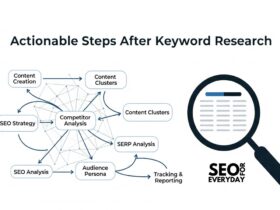Canonical tags play a crucial role in the world of Search Engine Optimization (SEO). They serve as directives to search engines, indicating the preferred version of a web page when multiple versions of similar content exist. Understanding canonical tags and their importance is essential for any website owner or SEO practitioner aiming to enhance their online presence.
In the vast landscape of the internet, duplicate content is a common occurrence. Whether it’s intentional or unintentional, having multiple versions of the same content can confuse search engines and dilute the ranking potential of a website. This is where canonical tags come into play.
What are Canonical Tags?
Canonical tags, also known as rel=canonical tags, are HTML elements placed within the <head> section of a webpage. They inform search engines about the preferred URL for indexing when duplicate or similar content exists across multiple URLs.
How do Canonical Tags work?
When a search engine encounters a canonical tag, it consolidates the ranking signals of all duplicate URLs and attributes them to the canonical URL. This helps in avoiding penalties for duplicate content and ensures that the preferred version of the content appears in search results.
Importance of Canonical Tags for SEO
Canonical tags offer several benefits for SEO efforts, making them an indispensable tool for website optimization.
Preventing Duplicate Content Issues
One of the primary purposes of canonical tags is to resolve duplicate content issues. By specifying the canonical URL, website owners can consolidate the ranking signals of duplicate pages, preventing search engines from indexing and penalizing them for duplicate content.
Consolidating Page Authority
When multiple versions of a webpage exist, the authority of the page can get fragmented across different URLs. Canonical tags help in consolidating this authority by directing search engines to the preferred version of the page, thereby maximizing its ranking potential.
Enhancing User Experience
Canonical tags contribute to a better user experience by ensuring that users are directed to the most relevant and authoritative version of a webpage. This reduces the likelihood of users encountering duplicate content in search results, leading to higher satisfaction and engagement.
Implementing Canonical Tags
Setting up Canonical Tags in HTML
Implementing canonical tags in HTML is relatively straightforward. Webmasters can add the <link rel=”canonical” href=”URL”> tag within the <head> section of the webpage, specifying the preferred URL as the canonical version.
Using Plugins for Content Management Systems
For websites built on Content Management Systems (CMS) like WordPress or Drupal, there are plugins available that simplify the process of setting up canonical tags. These plugins offer user-friendly interfaces for specifying canonical URLs and managing duplicate content effectively.
Best Practices for Canonical Tags
Consistency in Canonicalization
Maintaining consistency in canonicalization is crucial for ensuring the effectiveness of canonical tags. Website owners should consistently specify the canonical URL for each piece of content and avoid conflicting directives that might confuse search engines.
Monitoring and Updating Canonical Tags
As websites evolve and content gets updated, it’s essential to monitor and update canonical tags accordingly. Regular audits of canonicalization directives can help in identifying and resolving issues related to duplicate content and URL variations.
Common Mistakes to Avoid
Incorrect Implementation
One common mistake is the incorrect implementation of canonical tags, such as specifying non-canonical URLs or using multiple conflicting directives. Such errors can lead to confusion for search engines and undermine the intended purpose of canonicalization.
Ignoring Mobile Versions
With the increasing importance of mobile optimization, it’s crucial not to overlook canonicalization for mobile versions of webpages. Ignoring mobile versions can result in duplicate content issues and impact the overall SEO performance of a website.
Measuring the Impact of Canonical Tags
Analyzing SEO Performance
Monitoring the SEO performance of webpages before and after implementing canonical tags can provide insights into their effectiveness. Metrics such as organic traffic, keyword rankings, and indexation behavior can help in assessing the impact of canonicalization efforts.
Monitoring Indexing Behavior
Regularly monitoring indexing behavior through tools like Google Search Console can reveal any discrepancies or errors related to canonicalization. This allows website owners to promptly address any issues and ensure that search engines interpret canonical directives correctly.
Future Trends and Developments
As search engines continue to refine their algorithms and ranking criteria, the role of canonical tags in SEO is likely to evolve. Future developments may include advancements in canonicalization techniques, integration with emerging technologies like voice search, and enhanced support for dynamic content.
Final Verdict
Canonical tags are indispensable tools for resolving duplicate content issues, consolidating page authority, and enhancing the user experience. By understanding the importance of canonicalization and implementing best practices, website owners can improve their SEO performance and establish a stronger online presence.
Frequently Asked Questions
- What happens if I don’t use canonical tags?
Without canonical tags, search engines may index multiple versions of the same content, leading to duplicate content issues and potential SEO penalties.
- Can canonical tags be used across different domains?
Canonical tags are typically used within the same domain to specify the preferred version of a webpage. Using them across different domains may not have the desired effect.
- Do canonical tags affect website rankings?
Canonical tags help in consolidating ranking signals for duplicate content, which can indirectly impact website rankings by preventing dilution of authority across multiple URLs.
- Are canonical tags necessary for every webpage?
While canonical tags are beneficial for resolving duplicate content issues, they may not be necessary for every webpage, especially if the content is unique and does not have duplicate versions.
- How often should canonical tags be monitored and updated?
It’s advisable to regularly monitor and update canonical tags, especially when making changes to website content or structure, to ensure their continued effectiveness.







Leave a Reply